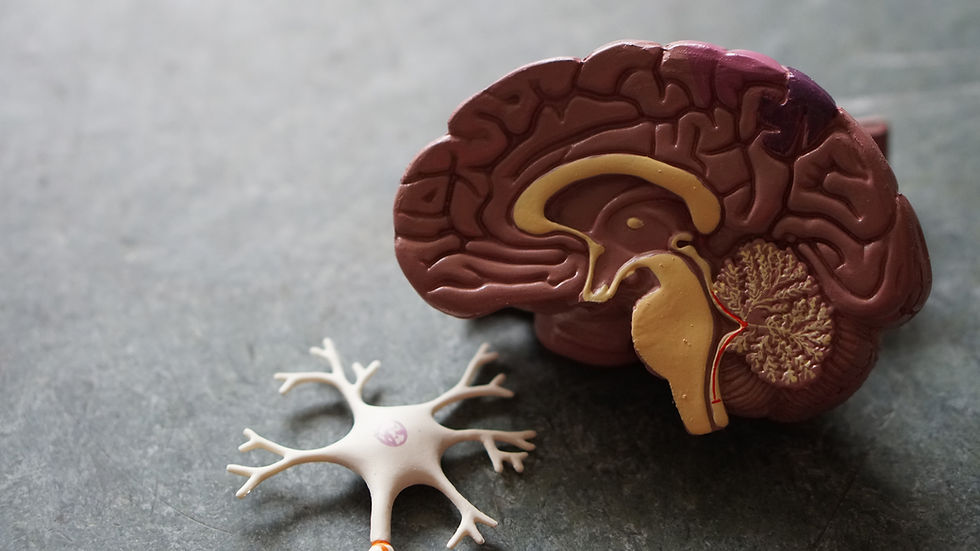Parkinson's Disease Dementia
- Jud Eson
- Mar 27, 2023
- 3 min read
About half of people with Parkinson’s will be affected by mild cognitive impairment (MCI). MCI means changes in memory and thinking that are noticeable to you but the changes do not impact your daily activities.
However, as the disease progresses people with PD can develop dementia. Some research suggests 75% of people develop dementia, others suggest much lower at about 20%. Dementia means that a person has permanent changes in their cognition that is significantly impacting their daily living.

Different forms of dementia
There are two major forms of dementia that impact those with Parkinson’s. Parkinson’s disease dementia (PDD) and dementia with Lewy Bodies (DLB). Lewy body dementia is an umbrella term for the two.
These disorders have the same underlying changes in the brain, but there is a key difference in the timing of their symptoms that differentiates the two. With DLB, cognitive changes can occur before or at the same time as onset of motor symptoms. It is important to note that there are some cases of DLB that do not develop motor symptoms at all. With PDD, motor symptoms (such as tremor or rigidity) occur for at least one year before there are cognitive changes. Today, we will be focusing more on PDD.
Symptoms of PDD
Memory changes and confusion - this can present as being disoriented and confused, have memory changes in both the short and long term memory, forgetting how to do simple every day tasks like making coffee, having a hard time concentrating, having difficulty learning new tasks, and difficulty with problem solving.
Mood changes, paranoia, hallucinations - people may become irritable and aggressive. They may see, hear, or feel things that are not real. They may be more distrusting or suspicious compared to in the past.
Visual perception difficulties - This may be a bit more subtle to recognize but this can be shown as having a hard time finding objects in a common space or difficulty with moving through familiar and unfamiliar places. Common eye conditionings such as macular degeneration can make this more challenging.
Language challenges - people may have a hard time naming objects, have difficulty with understanding complex sentences, and may have challenges with saying words out loud even though they can think of them.

How is this different from Alzheimers?
Alzheimers disease affects different proteins in the brain compared to Parkinson’s disease. In Alzheimer’s, amyloid plaques are built up and cause memory changes. Parkinson’s does not involve amyloid plaques - they involve lewy bodies.
PDD tends to be less disabling compared to Alzheimer’s.
Those with Alzheimer’s usually have challenges with language earlier in the disease progression compared to people with PDD.
People with Alzheimer’s are unable to form new memories, unlike people with PDD.
Treatment options
Unfortunately, there is not a cure for PDD. But, there are medications to help manage symptoms, such as low doses of antipsychotics or neuroleptics to treat mood changes.
Some PD medications can have side effects that enhance symptoms of dementia. Going through your medication list with your neurologist can be very helpful
Working with Physical, Occupational, and Speech Therapy to address any limitations will also be helpful. Check out our website of local therapists near you!
How to communicate with someone with PDD
Be patient and stay calm
Redirect attention if they are experiencing a hallucination or delusion instead of arguing.
Acknowledge what they are seeing even if you are not seeing it.
Try to use simple sentences and commands.
Speak at eye level and in a slow manor.
Limit questions to one question at a time.
Avoid distractions such as the TV
Think of other reasons as to why they may be agitated - are they tired, in pain, hungry, frustrated, bored, or lonely?
Dementia can be really scary and tricky to manage. If you or your loved one are showing signs of dementia, call your neurologist right away. Early diagnosis is crucial to the right management.
Sources:
